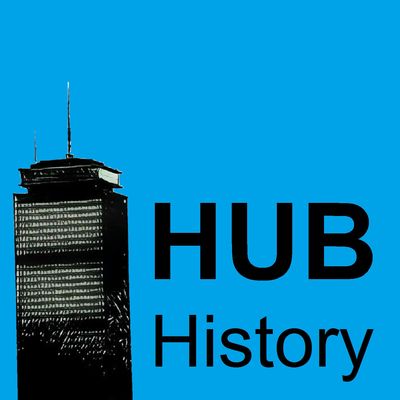Where two history buffs go far beyond the Freedom Trail to share our favorite stories from the history of Boston, the hub of the universe.
http://HUBhistory.com
Three Battles for Boston Light (episode 227)
Boston Light, America’s first and oldest light station, still welcomes visitors and locals alike if they approach the city by sea, but that wasn’t always the case. During the first year of the Revolutionary War, there were three attempts to destroy Boston Light during the siege of Boston. First, the newly formed Continental Army burned the strategically important lighthouse twice in July 1775, 246 years ago this week, using the 18th century equivalent of a stealth fighter: the humble whaleboat. Then, as the British finally evacuated Boston in the spring of 1776, the last ships to leave the harbor blew up the lighthouse that June.
Full show notes: http://HUBhistory.com/227/
Support us: http://patreon.com/HUBhistory/
Three Battles for Boston Light- Episode 186: The Battle of Chelsea Creek
- Episode 213: The search for Ben Franklin’s “Lighthouse Tragedy”
- Naval Documents of the American Revolution (vI/II, 1775)
- Naval Documents of the American Revolution (vV, 1776)
- Caleb Haskell’s diary describes the fast day on July 20
- “Struggle for a Lighthouse: The Raids to Destroy Boston Light,” Andrew A Zellers-Frederick, Journal of the American Revolution
- Abigail Adams to John, July 25
- Abigail Adams to John, July 31
- Mass legislature orders the removal of lighthouses at Gloucester, Boston, and Plymouth.
- General Heath reports the first successful raid to Washington
- A Continental watches the first raid from Brighton
- Washington praises the valor and mercy of the second raid
- Artillery officer’s account of the June 1776 explosion
- Mass legislature orders decoy ships and lights
- Two British transports are captured days after the lighthouse was blown up
- The Story of Boston Light, Fitz-Henry Smith, Jr
- Poetical Remarks upon the Fight at the Boston Lighthouse
Co-Presented by Revolutionary Spaces and the Upstander Project
From smallpox and measles, to cholera, dysentery, and tuberculosis, Indigenous peoples have suffered disproportionate loss of life from disease since European settlers began to trade with them and later occupy their land. The novel coronavirus has impacted Indigenous peoples with a familiar ferocity, flagging their perennial lack of good jobs, housing, and healthcare. Join a distinguished panel of experts to learn about the historical and present-day conditions that have made Indigenous people especially vulnerable to disease, and the strategies required to break this pattern of discrimination and social violence.
Panelists will include Ramona Peters (Mashpee Wampanoag), Chairwoman of the Native Land Conservancy, Lorén Spears (Narragansett/Niantic), Executive Director of the Tomaquag Museum, and Mishy Lesser, Learning Director at the Upstander Project. The discussion will be moderated by Claudia Fox Tree (Arawak) of the Massachusetts Center for Native American Awareness.
Sponsored by Liberty & Co.This week’s podcast is sponsored by Liberty & Co, who sell unique products inspired by the American Revolution. Their most recent offering is a selection of historic documents printed by the print shop of Edes & Gill that operates out of Faneuil Hall.
Printer Gary Gregory adopted the name of the 18th century print shop that published the Boston Gazette, a notorious Whig paper that helped fan the flames of Revolution. Gary uses a reproduction of a wooden English Common Press that was made in Colonial Williamsburg to print faithful reproductions of historic documents using authentic materials, equipment, and methods. Among the prints available from Liberty & Co is a reproduction of Thomas Paine’s American Crisis, the legendary pamphlet that helped Washington inspire his soldiers to stick out the times that try men’s souls at Valley Forge.
You could also select a magnificent copy of the Declaration of Independence, carefully reproduced from the Dunlap Broadside, which was the very first printed version of the Declaration, with the first pressing struck in Philadelphia on July 4, 1776. The Edes & Gill copy is printed at 3/4 scale, to be more convenient to frame and display in your home than a full 18th century broadsheet.
Save 20% on any purchase with the discount code HUBHISTORY.
